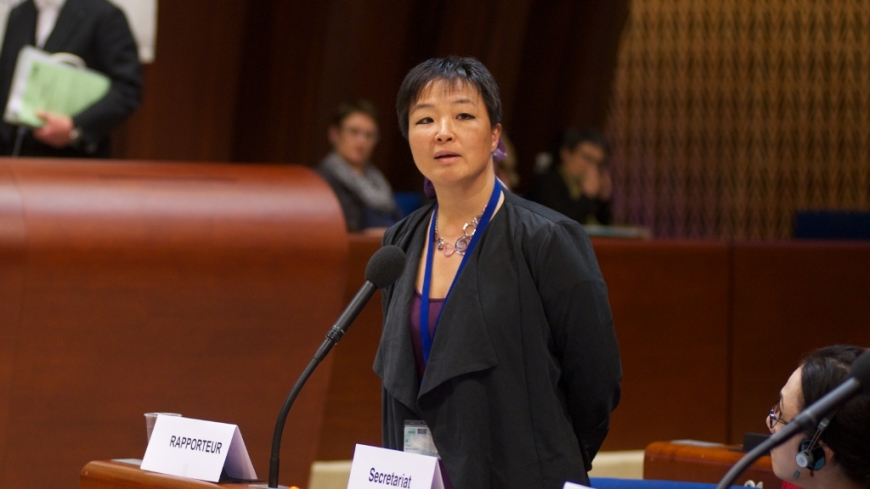On Wednesday 25 March 2015, the Congress debated and adopted the resolution and recommendation presented by Yoomi Renström (Sweden, SOC) on “Guaranteeing lesbian, gay, bisexual and transgender (LGBTI) people’s rights: a responsibility for Europe’s towns and regions”. The text calls on local and regional authorities to mobilise against the discrimination of all kinds which LGBT people suffer at local level and to introduce policies more respectful of their rights.
The rapporteur calls on local and regional authorities to include LGBTI matters in their political agendas while ensuring respect for their dignity, improving their safety and guaranteeing their social rights. Local elected representatives should set up action plans to combat discrimination and promote diversity and should condemn all incitement to hatred and intolerance. The adopted text calls on European local authorities to follow the example set by a number of European cities in the “Rainbow Cities” network, have set up co-ordination offices not only to train staff but also to guarantee respect for LGBTI people’s rights in all local policies.
Rainbow Cities: the example of Berlin
Nearly 250 000 LGBTI people live in Berlin, the German capital, which is part of the Rainbow Cities network. Florencio Chicote, co-ordinator of Berlin’s action plan against homophobia and transphobia in the city’s Anti-Discrimination Office, described this plan to the Congress. Berlin has had a museum of homosexuality since 1985 and, shortly after the fall of the Wall, set up an office dealing specifically with LGBTI matters. Respect for LGBTI people is fully in line with the diversity principles which are the hallmark of the city’s policies. Berlin organises numerous events to promote equal rights. The city’s police force, which operates under the authority of the Senate of Berlin, pays special attention to the prevention of violence against LGBTI people. Complaints made to it for this reason are always investigated. The city also participates in symbolic actions such as the Saint Christopher’s Day parades in June, and also encourages LGBTI tourists to come to Berlin, where there are a number of “gay friendly” hotels.
Several Congress members and youth delegates then reported on initiatives taken by their cities in support of LGBTI people. The speakers included John Warmisham (United Kingdom, SOC), Juliana Hoxha (Albania, NR), Kenny van Minsel (Belgium, Youth Delegate) and Tracey Simpson-Laing (United Kingdom, SOC). The latter described her city’s actions in support of equality, including “pride marches” during which the principal monuments are decorated with rainbow flags. She regretted, however, that there are still some residents who protest against these marches.
The Congress welcomed these initiatives and encouraged its members, as local and regional elected representatives, to adopt them in their local areas.
See also:




